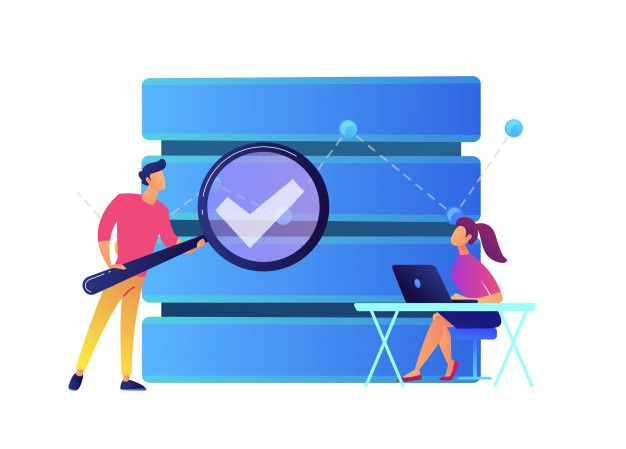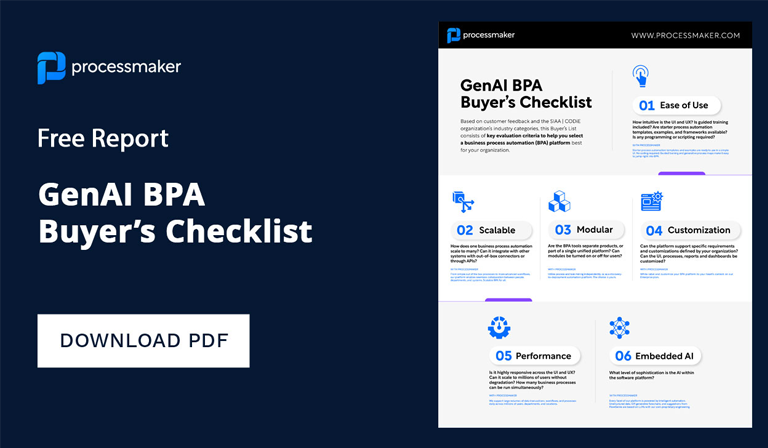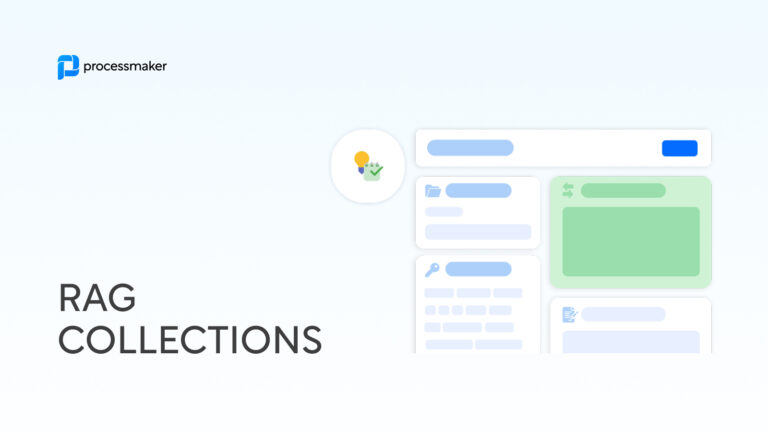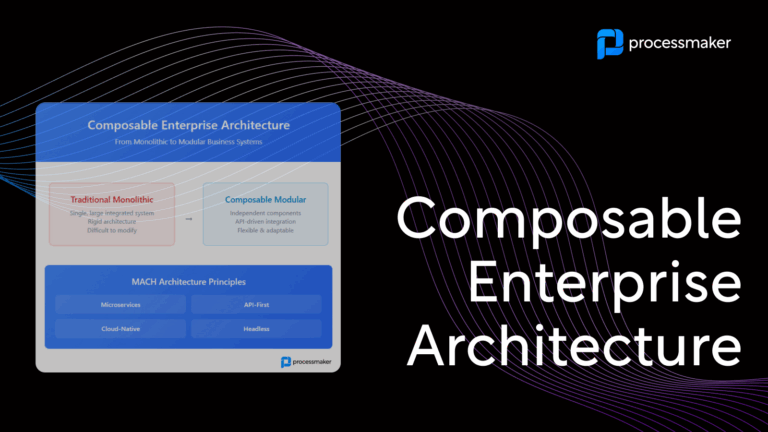As 2020 comes to a close, we look ahead to 2021, a year in which business process automation will grow to an estimated $12.7 billion market. This means that the market has nearly doubled in just 4 years. The rapid growth is not surprising given the enormous benefits that process automation technologies offer nearly every organization.
Research shows that process inefficiencies cost many organizations between 20-30% of their annual revenue. Not to mention, inefficiencies reduce quality, reduce employee morale, and lead to costly errors. For most leaders, the question is not should we automate, but rather what and how do we do it. The wide range of process automation technologies combined with overlapping functionality can seem overwhelming.
In this article we will explore common process automation technologies, how they integrate, and how to go about choosing the best solutions for your organization.
What is business process automation?
Business process automation (BPA) refers to the use of technology to perform repetitive tasks or processes. BPA improves efficiency, reduces costs, and significantly decreases the occurrence of human error. As process automation technologies have grown in popularity, organizations are using more and more solutions to meet their needs. In fact, according to research and consulting firm Gartner, 75% of organizations utilized more than 4 distinct automation solutions in 2017.
Key process automation technologies
iBPMS
iBPMS, or Intelligent Business Process Management System, is a term that was introduced by Gartner in 2012. iBPMS combines business process management (BPM) software with additional digital technologies like artificial intelligence (AI) to help organizations fully automate more processes. iBPMS solutions are cloud-based and typically feature low-code functionality allowing both professionals and “citizen developers” to seamlessly build and implement efficient workflows.
RPA
Robotic process automation (RPA) uses bots to replicate human and computer interactions. Unlike AI, however, RPA bots are unable to learn from experience. RPA serves to automate repetitive and time-consuming tasks so that humans can spend more time performing high-value tasks for the organization.
iPaaS
Gartner defines iPaaS, short for Integration Platform as a Service, as a “suite of cloud services enabling development, execution and governance of integrations flows connecting any combination of on premises and cloud-based processes, services, applications and data within individual or across multiple organizations.” iPaaS allows users to integrate both cloud-based and on-premises applications without the need for supporting infrastructure.
iPaaS arose as a solution to implementation challenges created by the emergence of SaaS business models and innovative third-party digital technologies. Fully integrating these solutions, as well as enterprise systems, provides organizations with scalable process automation solutions.
Low-Code Application Platform (LCAP)
Low-Code Application Platforms (LCAP), a term also coined by Gartner, are solutions that help organizations to quickly develop and deploy applications. Using intuitive features like drag-and-drop tools, those with no coding experience can build custom enterprise solutions. Moreover, experienced developers can utilize LCAPs to significantly increase the speed of the development process.
Applications that once required an entire team of developers working over 6 months can be built by a single person in a matter of hours or even minutes using an LCAP. LCAPs are a critical component of process automation initiatives. To remain competitive, organizations need access to scalable, affordable, and quickly implemented digital solutions, something made possible with low-code solutions.
iBPMS and process automation technology integration
It is becoming increasingly common for organizations to utilize a range of process automation tools. As process automation technology use has become more prevalent, there is a growing need for more advanced solutions. Using multiple tools allows organizations to move beyond the confines of individual processes and automate nearly any tedious and scalable task. The concept of employing multiple solutions is known as Hyperautomation.
iBPMS solutions are a solid foundation for orchestrating processes and automating tasks. Throwing RPA technologies into the mix allows organizations to automate more routine and repetitive tasks. Integrating an LCAP helps organizations to rapidly deploy applications and create innovative user experiences. And an iPaaS provides a secure and cost-effective integration tool.
Selecting the right process automation tools
Before you can select the right process automation technology for your organization, it is important to identify your needs. The key is to align your process automation goals with your organization’s business objectives. Identify processes that you wish to optimize. A good place to start is to perform a business process analysis (BPA). Consider the costs and risks associated with redesigning each process.
Note that completely scrapping your current enterprise systems for new process automation technologies is generally not advisable nor feasible. Instead, you will want to choose tools that integrate with your current systems. Moreover, you should target a process automation solution that offers you the ability to scale as you ramp up your automation efforts. In other words, start small and build off your success.
An iBPMS solution that offers low-code functionality is a great place to start. In addition to integrating your current solutions, business users can design, test, and deploy new processes quickly and efficiently. When choosing an iBPMS solution, ensure that the platform supports multi-functional teams through task collaboration to streamline the design and implementation processes.
Moreover, assess the platform’s ability to drive hyperautomation. Does the platform allow you to leverage complementary capabilities like process mining, machine learning, and artificial intelligence? Keep in mind that most organizations use multiple process automation solutions. To remain competitive, you will want to have the option to incorporate more and new technologies as your process automation initiatives mature.
ProcessMaker offers an industry leading low-code iBPMS platform. Countless organizations rely on ProcessMaker to transform their business processes and usher in the new age of hyperautomation.





